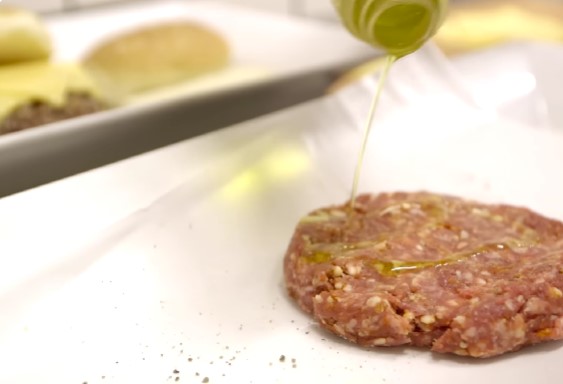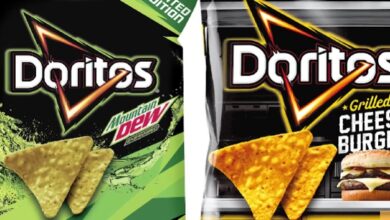Is Lamb Halal
Lamb is a popular meat enjoyed across various cultures and cuisines, known for its rich flavor and versatility in cooking. However, for Muslim consumers, ensuring that the lamb they eat is halal is crucial. The term “halal” means permissible according to Islamic law, and for lamb to be considered halal, specific guidelines and practices must be followed from the animal’s upbringing to its slaughter. This article delves into the details of what makes lamb halal, the processes involved, and how to ensure the meat you consume meets these standards.
Understanding Halal
Halal is an Arabic word that translates to “permissible.” In the context of food, halal refers to what is allowed for consumption according to Islamic law. The opposite of halal is haram, which means forbidden. For meat to be considered halal, the animal must be slaughtered in the name of Allah, using a specific method called zabiha or dhabiha, which ensures the animal’s humane treatment and the thorough draining of its blood.

Criteria for Halal Meat
Several criteria must be met for lamb to be considered halal:
- Permissible Species: Lamb, being a young sheep, falls under the category of permissible animals, which includes other ruminants like cows, goats, and deer. These animals have cloven hooves and chew cud.
- Humane Treatment: The animal must be treated well throughout its life. This includes proper feeding with clean and permissible foods, access to clean water, and a healthy living environment. The use of growth hormones or animal by-products is strictly prohibited.
- Halal Slaughter: The animal must be alive and healthy at the time of slaughter. The butcher, who must be a Muslim, recites the name of Allah before making a swift, deep cut across the animal’s throat with a sharp knife. This ensures a quick death and the complete drainage of blood, as consuming blood is prohibited in Islam.
- Certification: After slaughter, the meat must be certified by a reputable halal certification body to ensure all processes meet Islamic guidelines. Look for certification symbols and verify them with the certifying organization if necessary.
Importance of Halal to Muslims
For Muslims, consuming halal meat is a matter of faith and obedience to dietary laws set out in the Quran and Hadith (teachings of Prophet Muhammad). Halal meat is believed to be healthier and cleaner, free from harmful substances, and prepared in a way that ensures the welfare of the animal. This practice aligns with broader principles of ethical treatment and sustainability.
Halal Lamb in the Market
The demand for halal meat has led to its increasing availability in various markets. Many supermarkets and online stores now offer halal-certified lamb, making it easier for Muslim consumers to find and purchase halal meat. When buying halal lamb, it is essential to:
- Check for Certification: Look for halal certification symbols from recognized bodies.
- Verify Sources: Ensure that the vendors and suppliers adhere to halal practices by checking their certifications and contacting them if needed.
- Seek Reputable Suppliers: Choose trusted suppliers known for their commitment to halal standards, whether buying from local butchers, supermarkets, or online stores.
Cooking with Halal Lamb
Halal lamb can be used in a variety of dishes, offering a rich and flavorful base for many recipes. Some popular ways to prepare lamb include:
- Middle Eastern Spices: Use cumin, cinnamon, allspice, and curry to enhance the natural flavors of lamb.
- Herbs: Incorporate rosemary, thyme, and oregano for a fresh taste.
- Cooking Methods: Braise or stew lamb shoulder, grill or broil lamb loin, and roast, grill, or braise lamb leg for different textures and flavors.
Popular recipes include Moroccan lamb tagine, grilled lamb chops, and slow cooker lamb curry, all of which highlight the versatility and delicious taste of halal lamb.
Frequently Asked Questions
Is all lamb halal?
No, not all lamb is halal. For lamb to be considered halal, it must be slaughtered according to Islamic law, which involves a specific method of slaughter (dhabihah) where the animal’s throat is cut in a single, swift motion while invoking the name of Allah. Additionally, the animal must be healthy at the time of slaughter and the blood must be fully drained from the veins.
What is the difference between halal lamb and regular lamb?
Halal lamb is slaughtered following Islamic dietary laws, which include reciting a prayer before slaughtering, using a sharp knife to cut the throat swiftly, and ensuring the blood drains out completely. Regular lamb does not adhere to these specific requirements and may involve different methods of slaughter and processing.
Can halal lamb be stunned before slaughter?
Yes, in some countries like New Zealand, halal lamb can be stunned before slaughter as long as the stunning does not kill the animal and the animal is still alive at the time of the halal cut. This practice is regulated to ensure compliance with both animal welfare standards and halal requirements.
Why does halal lamb taste different from regular lamb?
Halal lamb may taste different because of the way it is slaughtered and prepared. The method of draining the blood from the meat can affect its texture and flavor. Some people find halal lamb to be more tender and less gamey due to the absence of blood.
Are there specific breeds of lamb that are preferred for halal meat?
There are no specific breeds of lamb that are required for halal meat. Any breed can be used as long as the animal is healthy and the slaughter process complies with Islamic law.
How can I ensure the lamb I buy is halal?
To ensure the lamb you buy is halal, look for halal certification on the packaging or purchase from a trusted halal butcher or market. Halal certification indicates that the meat has been slaughtered and processed according to Islamic dietary laws.
Is halal lamb more expensive than regular lamb?
The price of halal lamb can vary depending on the supplier and region. In some cases, halal lamb may be more expensive due to the specific requirements of slaughter and certification processes. However, this is not always the case, and prices can be competitive with regular lamb.
Where can I buy halal lamb?
Halal lamb can be purchased at specialized halal butchers, certain supermarkets with a halal section, and online retailers that specialize in halal meat. Some popular options include local halal markets, large grocery chains with halal sections, and online stores like MoveHalal and WeHalal.
What are the health benefits of eating halal lamb?
Halal lamb is often considered healthier because it adheres to strict hygienic practices during slaughter. The removal of blood can result in cleaner meat, and halal standards prohibit the use of certain chemicals and hormones, potentially leading to a more natural product.
Can non-Muslims eat halal lamb?
Yes, non-Muslims can eat halal lamb. It is simply meat that has been prepared according to Islamic dietary laws. Many people, regardless of their religion, choose halal meat for its perceived quality and ethical considerations.
Is halal lamb organic?
Halal and organic are not the same thing. Halal refers to the method of slaughter and the adherence to Islamic dietary laws. Organic refers to how the animal was raised, including the use of organic feed and no antibiotics or hormones. It is possible to have lamb that is both halal and organic, but they are separate certifications.
How long can you store halal lamb?
Halal lamb, like any other meat, can be stored in the freezer for up to 12 months if properly wrapped and stored at the correct temperature (-18°C or 0°F). Once defrosted, it should be cooked and consumed within a few days for the best quality and safety.
Is halal lamb available year-round?
Yes, halal lamb is available year-round. While lamb is traditionally seasonal, modern farming and global distribution ensure that halal lamb can be accessed throughout the year.
Are there any specific halal regulations for lamb in different countries?
Yes, halal regulations can vary by country. For example, New Zealand has stringent halal standards that include stunning the animal before slaughter, while in other countries, stunning may not be practiced. Each country may have its own regulatory body overseeing halal certification.
Does halal certification guarantee ethical treatment of animals?
Halal certification includes guidelines for the ethical treatment of animals, ensuring they are well cared for before slaughter and are not subjected to unnecessary pain or suffering. However, the level of animal welfare can vary, and consumers may want to research specific halal certifiers to understand their practices fully.
Conclusion
Lamb is considered halal and permissible for Muslim consumption when it meets specific Islamic guidelines regarding its treatment and slaughter. Ensuring the meat is certified halal involves checking for proper certification and understanding the processes involved in halal slaughter. With the increasing availability of halal-certified meat, enjoying halal lamb has become more accessible for Muslim consumers, allowing them to savor this delicious and nutritious meat while adhering to their dietary laws.
Read also:





